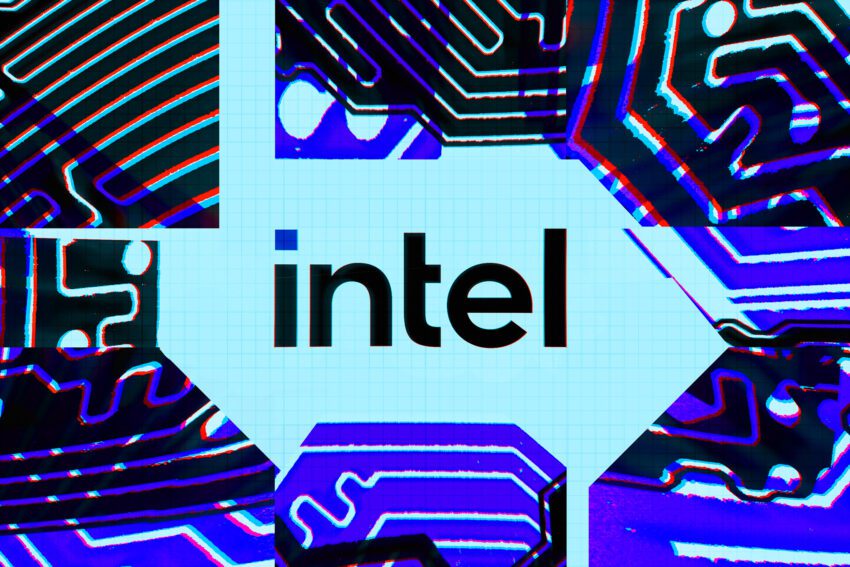
intel says star hire from tsmc didn Intel has defended itself against accusations that its latest executive hire stole trade secrets, as TSMC sues the exec and Taiwanese prosecutors say they’ve begun a probe into the incident.
intel says star hire from tsmc didn
Background on Wei-Jen Lo
Wei-Jen Lo, a prominent Taiwanese engineer, has recently made headlines following his appointment at Intel this fall. Lo’s career in the semiconductor industry spans several decades, beginning with his initial tenure at Intel in the 1980s. During this period, he contributed to the company’s growth during a time of significant technological advancement. After leaving Intel, Lo joined Taiwan Semiconductor Manufacturing Company (TSMC) in 2004, where he played a crucial role in overseeing the company’s operations during its most prosperous years.
TSMC has established itself as a leader in semiconductor manufacturing, providing chips for various high-profile clients, including Apple and Nvidia. Lo’s expertise in mass production processes was seen as a valuable asset for Intel, which is currently striving to regain its competitive edge in the semiconductor market.
Allegations Against Wei-Jen Lo
TSMC has taken legal action against Lo, alleging that he breached his employment contract and noncompete agreement, as well as violating Taiwan’s Trade Secrets Act. The company claims that there is a “high probability” that Lo will use, leak, disclose, or transfer TSMC’s trade secrets and confidential information to Intel. This assertion has prompted TSMC to pursue legal remedies, stating that such actions are necessary to protect its intellectual property.
The legal complaint filed by TSMC underscores the competitive nature of the semiconductor industry, where proprietary technology and trade secrets are crucial for maintaining market leadership. The stakes are particularly high given the rapid advancements in chip technology and the increasing demand for semiconductors across various sectors, including consumer electronics, automotive, and artificial intelligence.
Legal Proceedings and Investigations
The situation has escalated further with the involvement of Taiwanese authorities. Reports indicate that prosecutors have initiated a probe into Lo’s activities, leading to raids on two of his residences. During these raids, investigators seized computers, USB drives, and other potential evidence related to the case. Additionally, there are indications that Lo’s real estate holdings and shares may also be subject to seizure as part of the investigation.
This legal scrutiny reflects Taiwan’s stringent approach to protecting trade secrets. The country has a history of prosecuting individuals involved in the theft of intellectual property, particularly in the semiconductor sector. Earlier this year, Taiwanese authorities indicted three individuals in a separate case involving the alleged theft of TSMC’s chip-making technology to benefit a Japanese competitor. Such actions highlight the seriousness with which Taiwan treats issues of intellectual property theft.
Intel’s Defense
In response to the allegations, Intel has publicly defended its hiring practices and the integrity of its operations. An anonymous spokesperson for the company stated, “Based on everything we know, we have no reason to believe there is any merit to the allegations involving Mr. Lo.” The spokesperson emphasized Intel’s commitment to prohibiting the transfer of confidential third-party information, asserting that the company takes these commitments seriously.
This defense is crucial for Intel, especially as it seeks to restore its reputation and competitiveness in the semiconductor industry. The company has faced challenges in recent years, including delays in product launches and increased competition from rivals like TSMC. Intel’s ability to navigate this legal situation effectively will be vital for its ongoing efforts to reclaim its position as a semiconductor powerhouse.
Implications for the Semiconductor Industry
The unfolding events surrounding Wei-Jen Lo and Intel have broader implications for the semiconductor industry as a whole. As companies vie for technological supremacy, the protection of trade secrets has become increasingly paramount. The allegations against Lo serve as a reminder of the lengths to which companies will go to safeguard their intellectual property.
Furthermore, the situation highlights the complexities of talent mobility within the semiconductor sector. Engineers and executives often move between companies, bringing with them valuable expertise and insights. However, this movement can also lead to legal disputes over trade secrets and intellectual property, creating a challenging landscape for both employees and employers.
Stakeholder Reactions
The reactions from various stakeholders in the semiconductor industry have been mixed. Some industry experts have expressed concern over the potential ramifications of the legal proceedings for both Intel and TSMC. The outcome of this case could set a precedent for how trade secret disputes are handled in the future, particularly in the context of high-stakes competition between leading semiconductor manufacturers.
Investors are also closely monitoring the situation, as legal battles can impact stock prices and overall market confidence. Intel, which has a 10 percent stake from the U.S. government, is under scrutiny not only for its business practices but also for its ability to deliver on promises to revitalize its semiconductor operations. The company is aiming to capitalize on the current AI boom, a sector in which TSMC has been particularly successful.
Conclusion
The legal battle involving Wei-Jen Lo, Intel, and TSMC underscores the intense competition and high stakes in the semiconductor industry. As TSMC pursues legal action against Lo, alleging violations of trade secrets and employment agreements, Intel stands firm in its defense of the executive. The involvement of Taiwanese authorities adds another layer of complexity to the situation, highlighting the importance of protecting intellectual property in a rapidly evolving technological landscape.
As the semiconductor industry continues to grow and innovate, the outcomes of such legal disputes will play a significant role in shaping the future of technology and competition. The resolution of this case will not only affect the parties involved but may also influence how companies approach talent acquisition and the safeguarding of trade secrets in the years to come.
Source: Original report
Was this helpful?
Last Modified: November 27, 2025 at 5:37 pm
0 views















